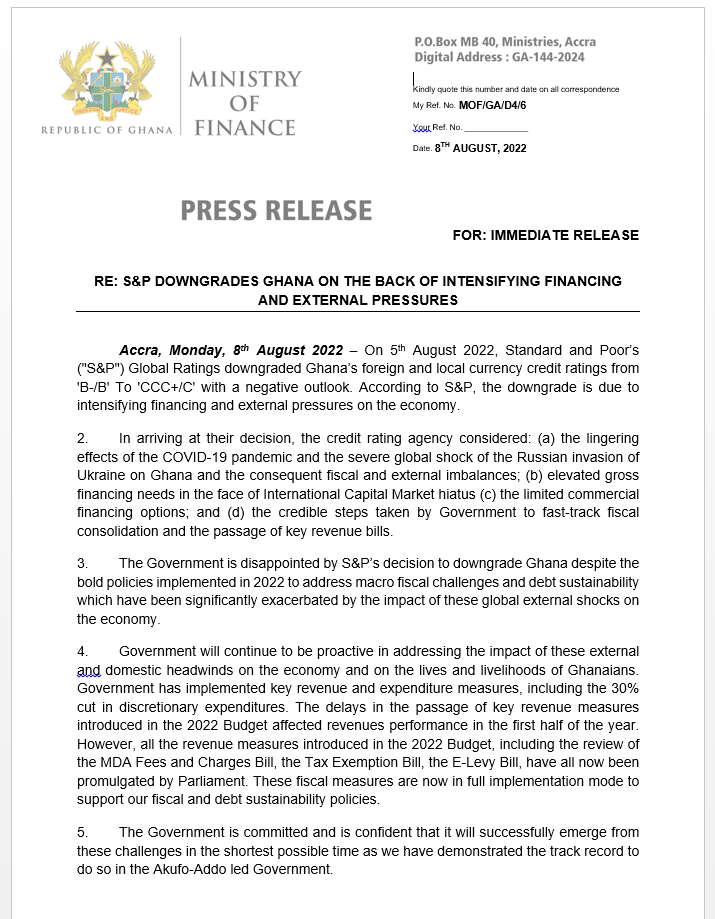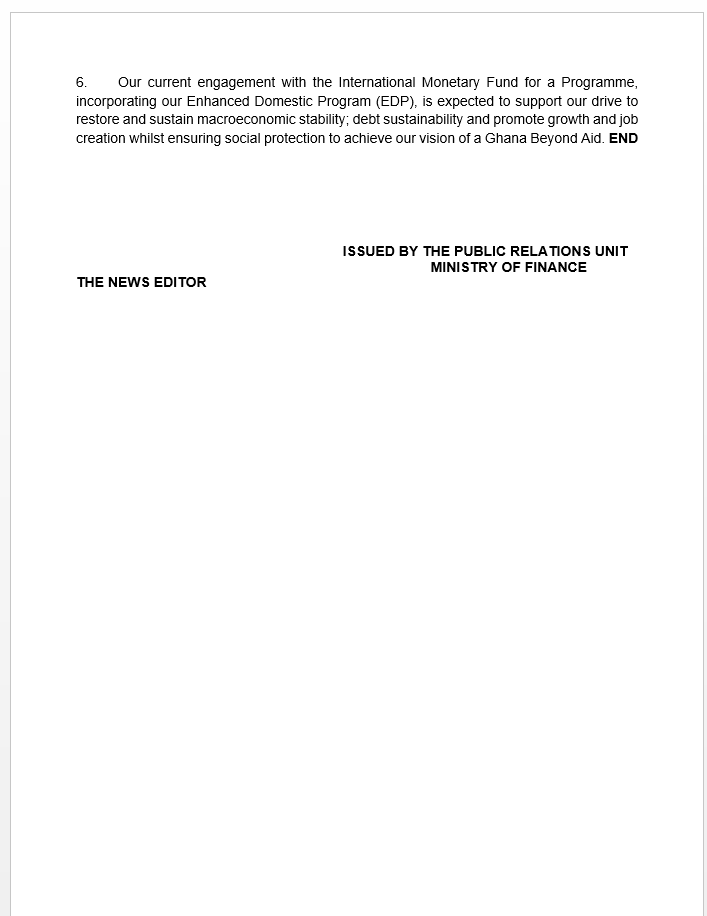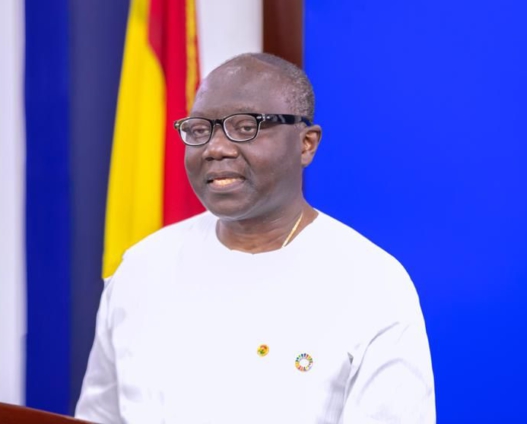The government has expressed disappointment by rating agency, S&P’s, decision to downgrade Ghana despite the bold policies implemented in the 2022 to address macro fiscal challenges and debt sustainability which have been significantly exacerbated by the impact of these global external shocks on the economy.
In a statement from the Finance Ministry, it said government will continue to be proactive in addressing the impact of these external and domestic headwinds on the economy and on the lives and livelihoods of Ghanaians.
“Government has implemented key revenue and expenditure measures, including the 30% cut in discretionary expenditures. The delays in the passage of key revenue measures introduced in the 2022 Budget affected revenues performance in the first half of the year. However, all the revenue measures introduced in the 2022 Budget, including the review of the MDA Fees and Charges Bill, the Tax Exemption Bill, the E-Levy Bill, have all now been promulgated by Parliament”.
“These fiscal measures are now in full implementation mode to support our fiscal and debt sustainability policies”, the statement explained.


Furthermore, it said the government is committed and is confident that it will successfully emerge from these challenges in the shortest possible time as “we have demonstrated the track record to do so in the Akufo-Addo led government”.
“Our current engagement with the International Monetary Fund for a programme, incorporating our Enhanced Domestic Program (EDP), is expected to support our drive to restore and sustain macroeconomic stability; debt sustainability and promote growth and job creation whilst ensuring social protection to achieve our vision of a Ghana Beyond Aid”, it concluded.
Standard and Poor’s ("S&P") Global Ratings on Friday August 5th, 2022 downgraded Ghana’s foreign and local currency credit ratings from 'B-/B' To 'CCC+/C' with a negative outlook.
According to S&P, the downgrade is due to intensifying financing and external pressures on the economy.
In arriving at its decision, the credit rating agency considered the lingering effects of the COVID-19 pandemic and the severe global shock of the Russian invasion of Ukraine on Ghana and the consequent fiscal and external imbalances; elevated gross financing needs in the face of International Capital Market hiatus; the limited commercial financing options and the credible steps taken by government to fast-track fiscal consolidation and the passage of key revenue bills.
Latest Stories
-
Ghanaian entertainers need to explore beyond Nigeria – OB Amponsah
4 mins -
EOCO boss urges women leaders to seek regular medical screening
7 mins -
Why 2 Supreme Court Justices dissented on vacant seats ruling
12 mins -
China is leading source of investment destinations in Ghana in half-year 2024
15 mins -
Lordina Mahama visits Manhyia ahead of 2024 elections
18 mins -
Ghana Standards Authority calls for heightened awareness on food products labeling
23 mins -
Agric Ministry launches $227m Tree Crop Diversification Project
31 mins -
GHS reports 1 MPOX case in Greater Accra Region
36 mins -
Front pages : Friday , November 15, 2024
37 mins -
Mahama: 24-hour economy policy to boost economy, stimulate Growth
58 mins -
Mahama calls on Ghanaians not to vote ‘Skirt and Blouse’ in upcoming elections
58 mins -
Expired rice for students: Education Ministry vows consequences if…
1 hour -
Ghana’s anti-corruption laws are ineffective, says OSP
2 hours -
Ghana ranked among the best in Africa for quality of elections – EC touts
2 hours -
Telecom sector contributes over GH₵9.8bn in taxes in 2023
2 hours

